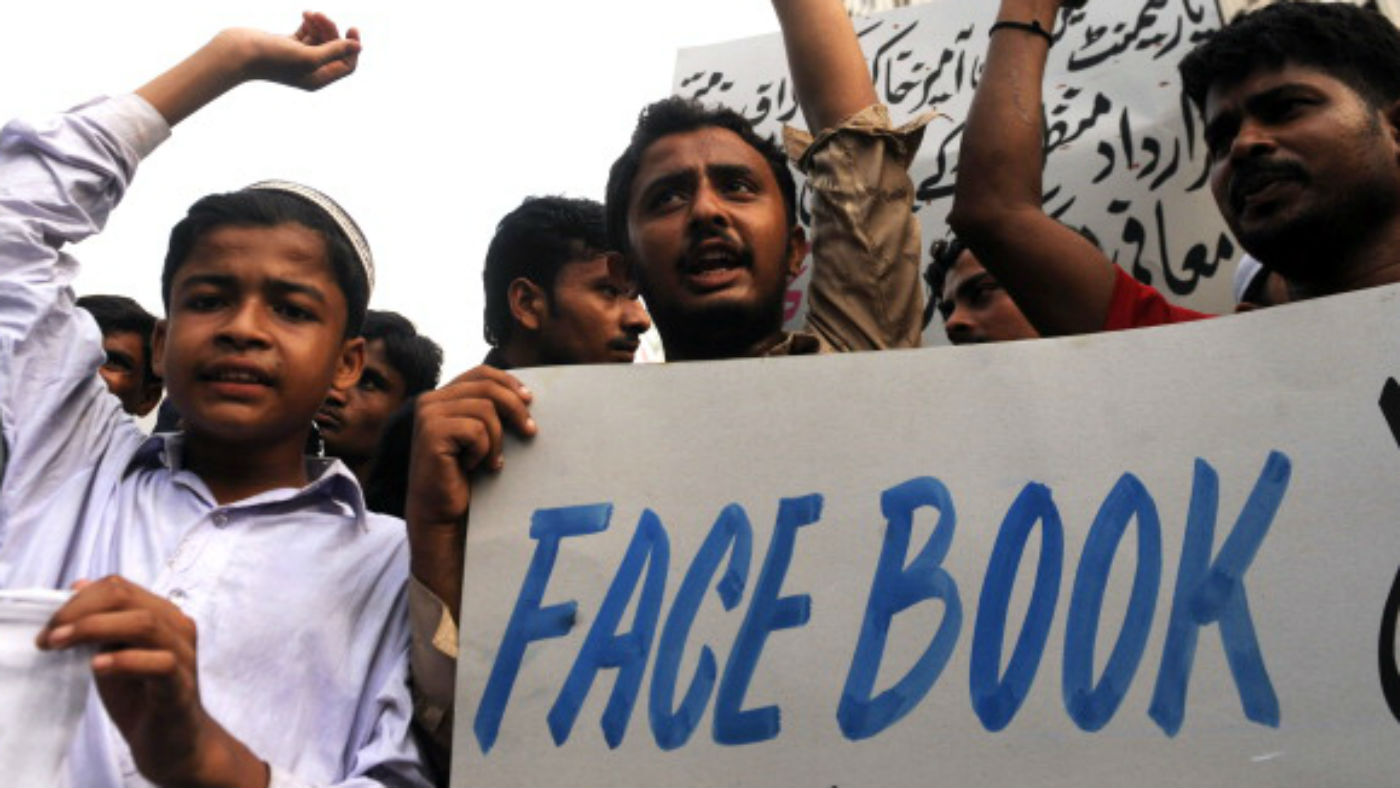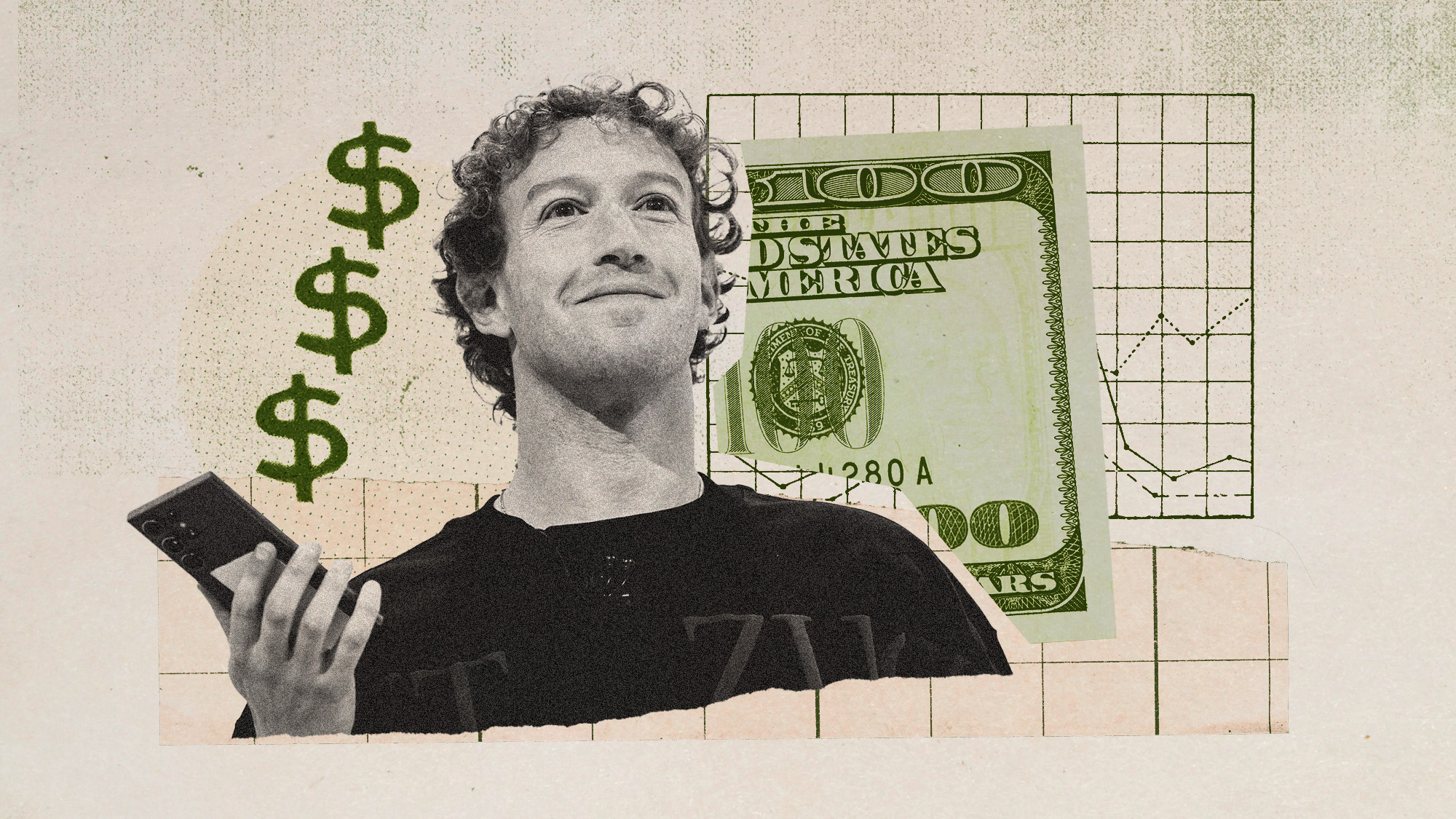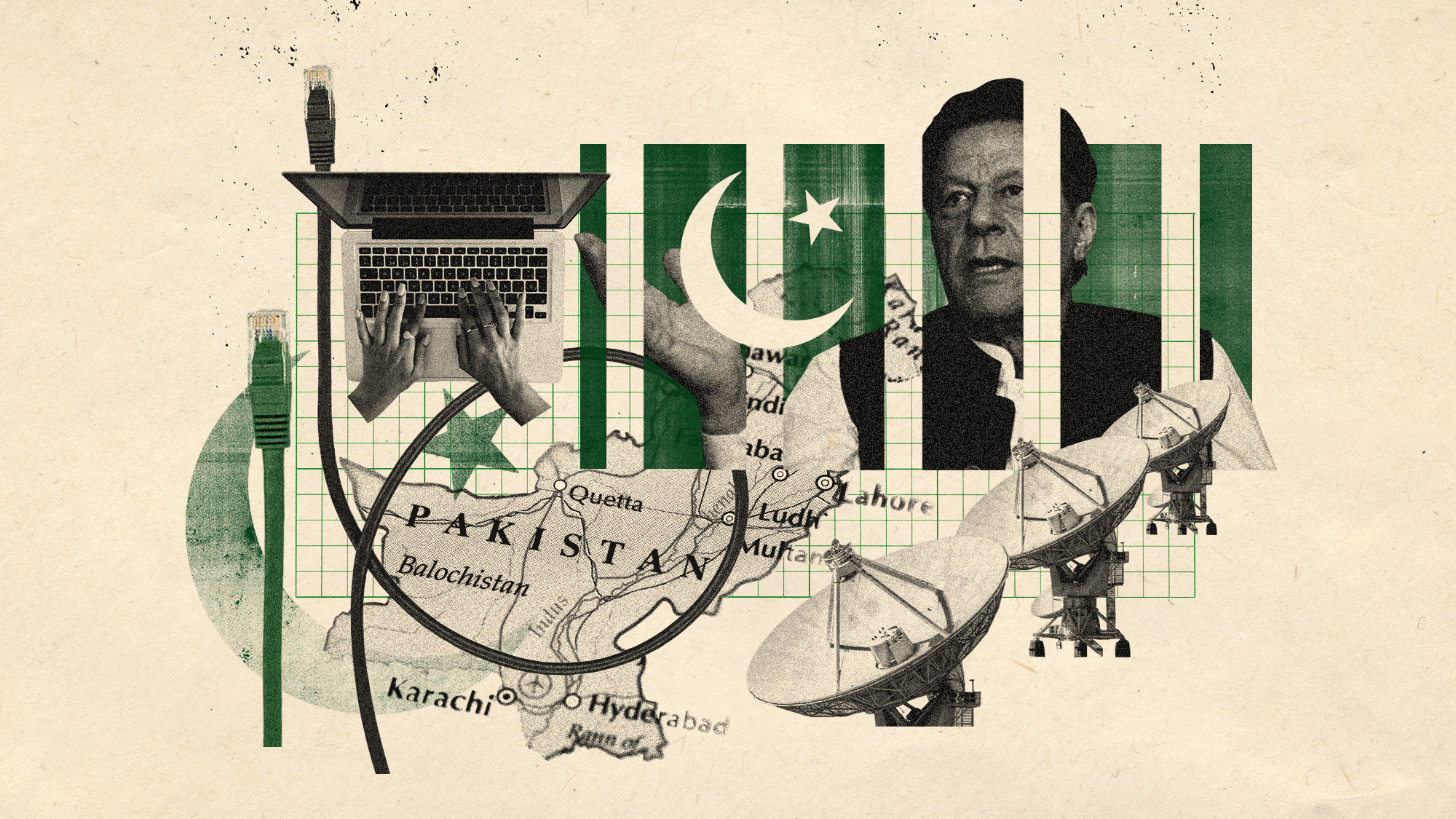Pakistan calls for Facebook meeting over blasphemy posts
Human rights groups slam the social network's 'collusion' on 'censorship'

A free daily email with the biggest news stories of the day – and the best features from TheWeek.com
You are now subscribed
Your newsletter sign-up was successful
Facebook is sending a team to Pakistan to discuss "blasphemous content" posted on the social network, according to the country's interior ministry.
Pakistan requested a meeting with Mark Zuckerberg's company after concerns over such posts, a sensitive and explosive issue in the country.
Prime Minister Nawaz Sharif has backed a thorough crackdown, calling blasphemy an "unpardonable offence" on his party's official Twitter account this week.
The Week
Escape your echo chamber. Get the facts behind the news, plus analysis from multiple perspectives.

Sign up for The Week's Free Newsletters
From our morning news briefing to a weekly Good News Newsletter, get the best of The Week delivered directly to your inbox.
From our morning news briefing to a weekly Good News Newsletter, get the best of The Week delivered directly to your inbox.
Interior minister Chaudhry Nisar Ali Khan added he would take "any steps necessary" to make sure Pakistan's message got across. "Facebook and other service providers should share all information about the people behind this blasphemous content with us," he told Dawn newspaper.
However, critics warn there might be a more sinister motive behind the moves, saying Pakistan's blasphemy legislation, which allows for the death penalty, is often abused to oppress minorities, reports the BBC.
"Digital rights groups have expressed 'serious reservations' and have called such steps 'playing with the lives of innocent people'," says BBC Urdu social media editor Tahir Imran.
Campaigners have also criticised Facebook "for colluding with authorities and censoring content infringing freedom of expression".
A free daily email with the biggest news stories of the day – and the best features from TheWeek.com
The social network giant has not yet made any public comment about a delegation being sent to Pakistan.
Meanwhile, local media claims at least 11 people allegedly involved in uploading and sharing "objectionable material", have been identified and are being questioned.
-
 The 8 best TV shows of the 1960s
The 8 best TV shows of the 1960sThe standout shows of this decade take viewers from outer space to the Wild West
-
 Microdramas are booming
Microdramas are boomingUnder the radar Scroll to watch a whole movie
-
 The Olympic timekeepers keeping the Games on track
The Olympic timekeepers keeping the Games on trackUnder the Radar Swiss watchmaking giant Omega has been at the finish line of every Olympic Games for nearly 100 years
-
 Is social media over?
Is social media over?Today’s Big Question We may look back on 2025 as the moment social media jumped the shark
-
 Social media: How 'content' replaced friendship
Social media: How 'content' replaced friendshipFeature Facebook has shifted from connecting with friends to competing with entertainment companies
-
 Meta on trial: What will become of Mark Zuckerberg's social media empire?
Meta on trial: What will become of Mark Zuckerberg's social media empire?Today's Big Question Despite the CEO's attempt to ingratiate himself with Trump, Meta is on trial, accused by the U.S. government of breaking antitrust law
-
 What does an ex-executive's new memoir reveal about Meta's free speech pivot?
What does an ex-executive's new memoir reveal about Meta's free speech pivot?Today's Big Question 'Careless People' says Facebook was ready to do China censorship
-
 What's Mark Zuckerberg's net worth?
What's Mark Zuckerberg's net worth?In Depth The Meta magnate's products are a part of billions of lives
-
 Pakistan 'gaslighting' citizens over sudden internet slowdown
Pakistan 'gaslighting' citizens over sudden internet slowdownUnder the Radar Government accused of 'throttling the internet' and spooking businesses with China-style firewall, but minister blames widespread use of VPNs
-
 Is the AI bubble deflating?
Is the AI bubble deflating?Today's Big Question Growing skepticism and high costs prompt reconsideration
-
 How social media is limiting political content
How social media is limiting political contentThe Explainer Critics say Meta's 'extraordinary move' to have less politics in users' feeds could be 'actively muzzling civic action'